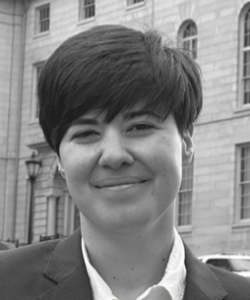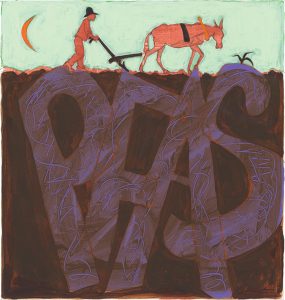What’s in a Name? Being a League of Women Voters in 2022
by Anna Kellar
What does it mean to be an organization called the League of Women Voters in 2022, when the ideas of community action, feminist politics, and voting are each hotly contested?
We are a league because we believe in collective action, in community, and in the power of people coming together to solve problems and support each other. The league operates by the often-quoted principle attributed to Margaret Mead that “a small group of thoughtful, committed citizens can change the world. Indeed, it is the only thing that ever has.”
This basic idea has become increasingly difficult to put into practice, as polarization, COVID, and the stress of living through simultaneous crises have increasingly placed us in isolation. Overwhelmed, many people have withdrawn from community spaces. Many Americans are alienated from civic and social institutions and unsure how to engage in the issues they care about other than through social media.
Yet, we also encounter many people who are craving community, mentorship, and shared spaces to learn and explore. Give someone a role to play in a meaningful project and a team to back them up, and despair recedes. We especially see this in the members of the league’s Youth Council, high school students from around the state who come together in virtual spaces to expand their organizing skills and support each other in working on the issues they care about. Across geography and generations, we can connect as people, discover our shared interests, and build our collective power.
Women may be the most fraught term in our name. The league was founded by Carrie Chapman Catt, a suffrage leader, and its early members were the women who had fought to earn their right to vote. The passage of the 19th Amendment was the crowning achievement of first-wave feminism. Two things complicate this history, and in turn, our identity. First, the league was (and is) not only for women. Second, for too long, the league did not welcome all women.
We have thought a lot about this aspect of our history, acknowledging the ways in which Black women were excluded from the suffrage movement and the shameful slowness with which the league joined the civil rights movement in the 1960s. Too often, the upper-middle-class White women who held positions of power within the movement were willing to compromise on the rights of women of color to win over White male power holders. They allowed the extension of voting rights to White women to be used as a bulwark against the potential voting power of Black men. And they all too often ignored the concerns and contributions of
working-class and immigrant women.
I would argue to my fellow White feminists that we should not repudiate our ancestors in the movement but learn from their mistakes. Are there examples today where we are ignoring or even harming potential allies whose concerns we don’t understand, or whose methods seem too radical for our comfort? Who is on the margins of our organizing? Do we settle for compromises that make incremental progress at the expense of the most vulnerable in our society? Let’s learn from our history and try to do better.
Gender justice in politics is urgently relevant today. The overturning of Roe v Wade, and the wave of policies attacking transgender people are two pieces of an agenda that seeks to strip women and gender-diverse people of their bodily autonomy and equal citizenship. As we confront these threats, our feminism must be intersectional, and it must be inclusive of people of all genders, including men who believe in equality, who are willing to join us in the league.
The voter in our name is an active word. We aren’t just concerned citizens, but voters. It is a claim to power, the triumphant declaration of women who had just fought and suffered to achieve that right. We believe in the power of the vote as the central act of our democracy. Our vote is our equal stake in our communities, the recognition of our essential worth and humanity. We continue to question the boundaries placed on who can vote, how, when, and where they can vote, and policies that dilute the power of our votes, like gerrymandering and the Electoral College.
In Maine, the League of Women Voters is leading the way toward a better democracy. In the last few years, Maine passed the nation’s first statewide ranked- choice voting law, strengthened our first- in-the-nation clean elections law, instituted automatic voter registration and online voter registration, and expanded access to absentee voting. We continue to be one of the states with the highest voter turnout, though we are not content with our 75 percent mark.
We are more powerful as voters when we are informed, which can be a challenge in these days of disinformation, attack ads, and weakened local media. The league still performs many of our traditional roles—
candidate and issue forums, voter guides— although we have expanded our ambitions to match the 21st century needs. In 2022, we provided nonpartisan voter information in 10 languages, and our Vote411.org digital guide meant that no matter where you lived in Maine, there was a single place where you find information about your state and municipal ballots.
As heirs to a movement to expand the vote, we continue to look to who is left out of our democracy. The disenfranchisement of voters in Washington, DC, is a blight on our democracy, and we strongly support statehood for DC. We are proud that Maine is one of two states that has never disenfranchised people who are incarcerated, though work remains to ensure that all voters in jails and prisons are able to exercise that right.
The league uses a process of study and member consensus to come to our advocacy positions. We are continuing to push the boundaries of the definition of voter. Should the voting age be lowered to 16 as two bills in the last legislative session proposed? Should noncitizen residents be allowed to vote in municipal elections as has been proposed several times in Portland? We don’t have answers yet, and we welcome interested people to join us in asking these questions.
In microcosm, the League of Women Voters is wrangling with many of the same questions of power, community, and identity that American democracy is confronting. It is a sometimes messy and painful process of growth and reexamination. We also find joy in trying new ideas, learning from our mistakes, and celebrating each other’s success. More than 100 years after its founding, the League of Women Voters continues to find new ways of living up to our mission of making democracy work.

Anna Kellar is the executive director of the League of Women Voters of Maine. Kellar started working on democracy reform in Maine as an organizer on the 2015 referendum that strengthened the Maine Clean Elections Act. They ran for the state legislature as a Clean Elections candidate in 2016. In 2017, Kellar was appointed as the first joint executive director for Maine Citizens for Clean Elections and the League of Women Voters of Maine.

